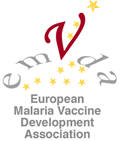About the Repository
The European Malaria Reagent Repository is dedicated to the development, annotation, and curation of the largest and globally most diverse bank of malaria parasite-specific reagents. The aim of the repository is to secure the future of reagents held in the University of Edinburgh and maximise their utility across the global community. Edinburgh’s long history of malaria research has generated a globally recognised collection of reagents that includes:
- Parasite cell lines, including >380 strains of laboratory-adapted parasites of human and rodent malaria parasites. This includes the WHO Registry of Standard Strains of Malaria Parasites, established in 1983.
- The P. falciparum collection includes genetically and antigenically diverse isolates collected over several decades from globally diverse locations, clonal progeny from genetic crosses, and a unique bank of lines selected for adhesion phenotypes.
- The rodent malaria parasites were collected from 1948-1972 and span 4 species and over 13 subspecies. The collection contains viable original isolates, characterised cloned lines, the progeny of crosses generated between defined clones, and a series of congenic lines resistant to most of the major antimalarial drugs.
- Parasite proteins, including panels of recombinant proteins used in diagnostics, vaccine development, and immunological assays. This includes >60 characterised proteins derived from blood stage antigens of P. falciparum and 10 proteins derived from MSP-1 antigens of P. chabaudi.
- Antibodies, including >200 cloned hybridoma cell lines, monoclonal and polyclonal antibodies, specific for a wide range of P. falciparum antigens.
The European Malaria Reagent Repository was originally developed by David Cavanagh and is now led by a team of Edinburgh’s current malaria researchers, including Graeme Cowan, Joanne Thompson, Alex Rowe and Jason Mooney. Reagents are provided to the community on a cost-recovery basis.
Please follow the links above to find our which reagents are available, how to request material, information on charges and delivery, as well as resources for malaria research.
Frequently Asked Questions
What is the purpose of this facility?
The European Malaria Reference Reagent Repository (www.malariaresearch.eu) facility provides a new European based resource to the malaria research community. The Resource Centre is in the early stages of establishment, but is based on the former Plasmodium falciparum and mouse Plasmodia resources of the WHO malaria parasite repository held at the University of Edinburgh, plus the extensive hybridoma collections established by Richard Carter and Jana McBride. We are able to acquire and distribute malaria-related research reagents, materials and standard operating protocols for malaria research.
How does the the European Malaria Reference Reagent Repository repository work?
Initially David Cavanagh collaborated with several groups of European scientists engaged in malaria research and vaccine development, who were encouraged to contribute materials and to utilise this resource. As part of the European Malaria Vaccine Development Association, David Cavanagh's group concentrated on the provision of a limit number of standardised parasite clones, characterised mainly by DNA sequencing of important vaccine antigen genes. These clones were tested for absence of mycoplasma spp. contamination, and have been produced from already characterised parasite clones deposited in the Edinburgh collection over the last 40 years. Reagents are available to any bona fide researchers who request them by email. Users of reagents are required to accept our terms of safe shipping, use, and material transfer. A catalogue of the reagents is available on the website www.malariaresearch.eu.
How do I request a reagent from the database?
To request a reagent, please email emrr@ed.ac.uk
How do I submit a reagent to the database?
Deposits into the European Malaria Reference Reagent Repository are easy! Fill in the form provided with all the relevant information on the reagent. Submit the form to emrr@ed.ac.uk. The submission form is available by clicking here.
How can I access more information about the reagent than is on the database?
Requests for additional information/clarification concerning a reagent should be addressed to the director by email.
Can the reagents be passed to other laboratories outside the consortium?
Reagents should not under any circumstances be passed to a third party without written permission from the rerpository director.
How will www.malariaresearch.eu acquire reagents?
All scientists and malaria researchers are encouraged to suggest reagents that should be acquired by the European Malaria Reagent Repository, or to offer materials that they believe will be of value to the scientific community. Members of the EMRR will solicit deposits of useful reagents from peers and colleagues.
What types of reagents are included in the repository’s database?
The European Malaria Reagent Repository offers the following types of reagents:
- Malaria parasites
- Proteins (recombinant proteins, antigens, etc.)
- Polyclonal and monoclonal antibodies
- Hybridomas
- Parasite DNA
- P. falciparum extracts



